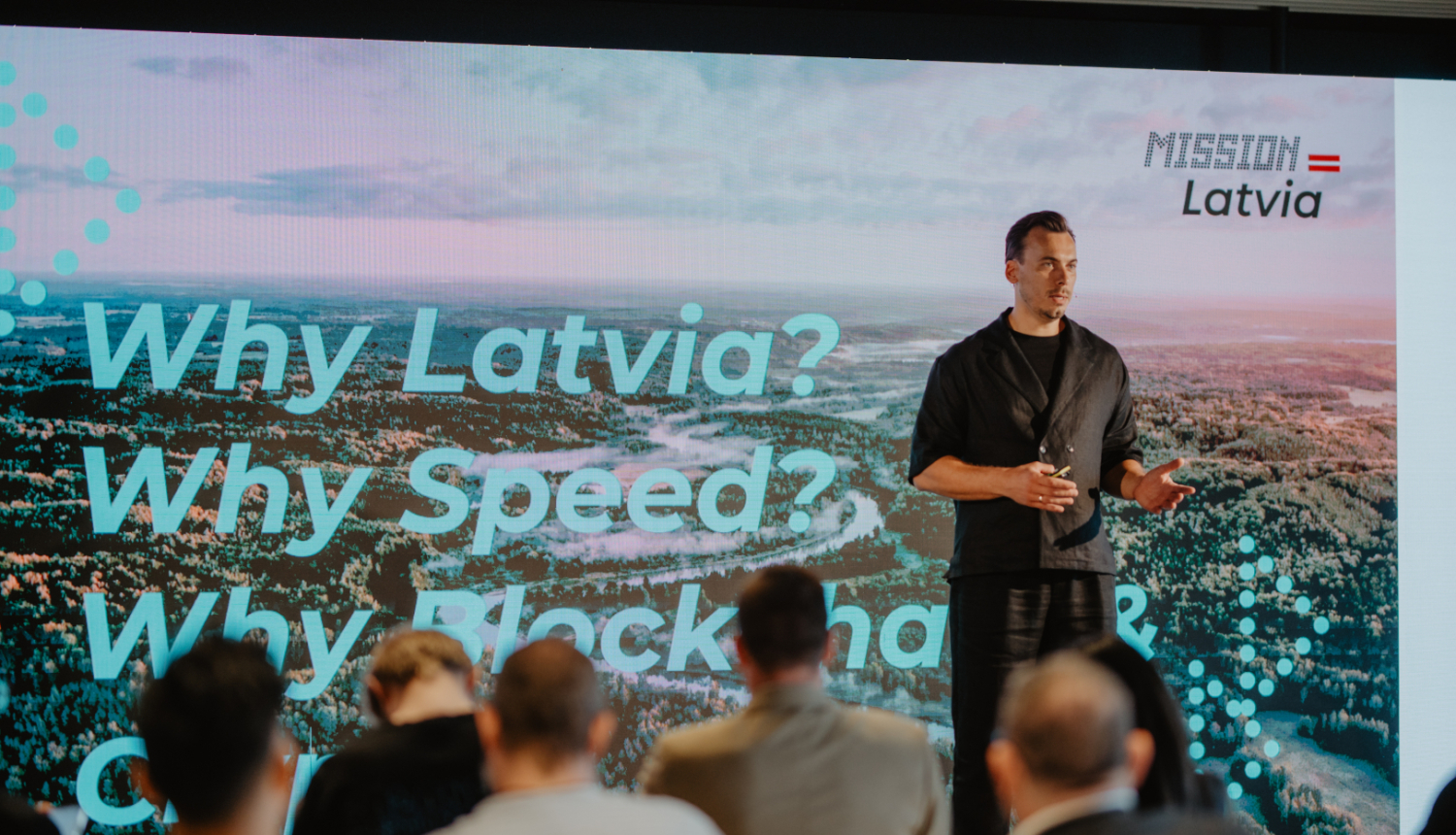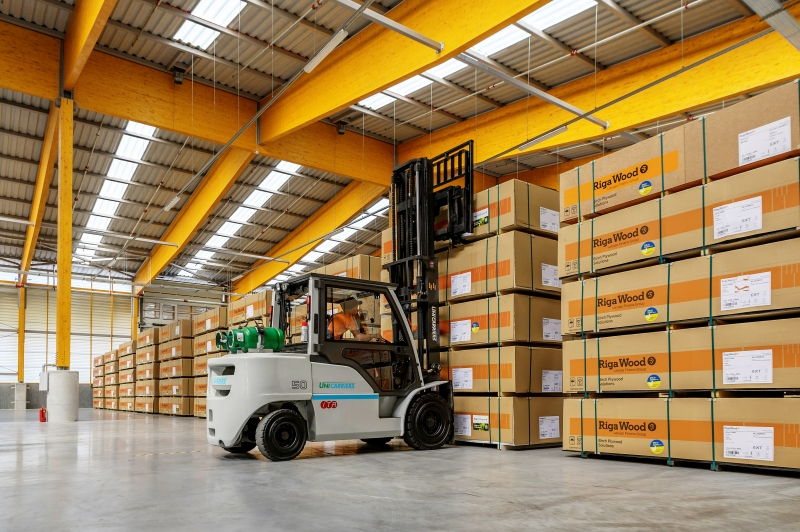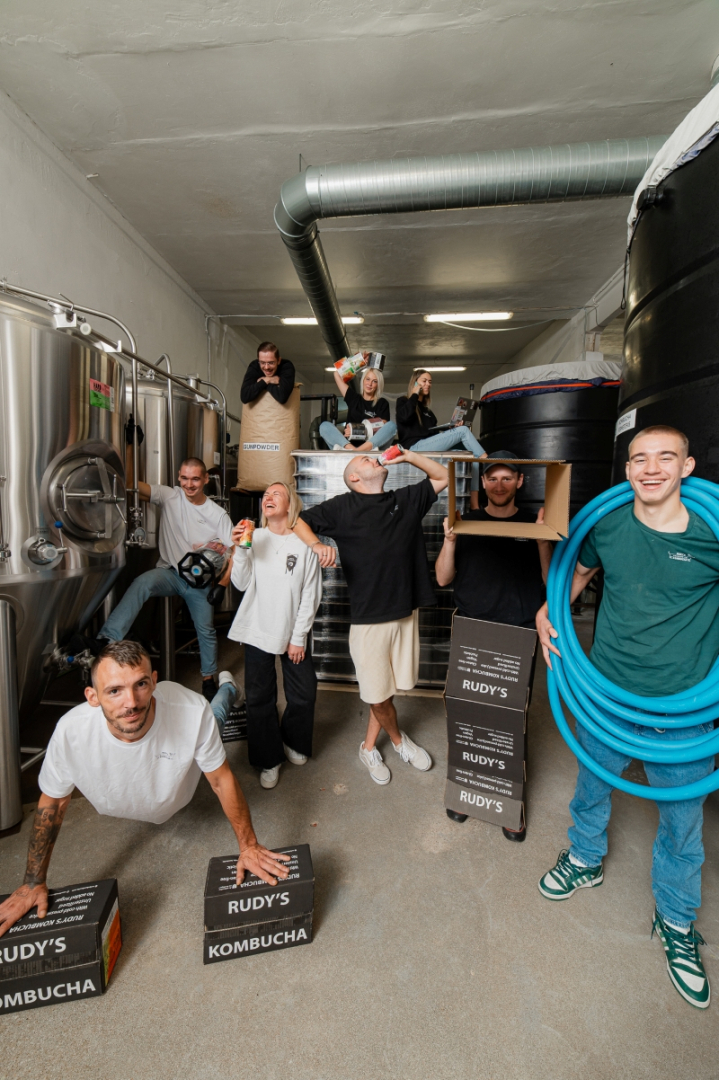At the end of February this year, the Investment and Development Agency of Latvia (LIAA) opened a representative office in Spain, thus adding to LIAA’s extensive global network covering Europe, the United States, Asia, the Middle East and Australia. The aim of the new office is to help Latvian companies understand the local market, establish business contacts, find cooperation partners and promote investment in Latvia. In the first few months, more than 50 companies have already taken advantage of export consultations, and more than 10 potential investors with specific project plans have been approached in Spain. Spain is a large and promising but also challenging market that requires both in-depth research and the ability to adapt, as confirmed by Edgars Ivanovs, LIAA representative in Spain, and Latvian companies Latvijas Finieris and Rudy’s Kombucha, which have already achieved success in this region.
Spain is still a relatively new market for Latvian exporters, made particularly attractive by recent economic trends in the country. With more than 47 million consumers, Spain is the fourth largest economy in the Eurozone. Spain’s gross domestic product (GDP) is growing at a rate of 0.7 % per quarter, in contrast to other large EU economies and the EU as a whole (0.1 % per quarter). The country offers a wide range of developed industries, from biotechnology, smart energy and mechanical engineering to a start-up environment concentrated in cities such as Madrid and Barcelona. “Over the past five years, the Spanish economy has grown faster than other major European economies, including Germany, France and Italy. It has also demonstrated greater resilience to geopolitical shocks, making it an attractive market for exports,” says Edgars Ivanovs.
At the same time, he acknowledges that the Spanish market is not simple – it is structured regionally, with industry centres in different locations. For example, mechanical engineering and metal-working companies are concentrated in the Basque Country, pharmaceuticals and chemicals – in Catalonia, while food processing dominates in the south of the country. The fintech and ICT sectors are developing mainly in Barcelona and Madrid. Latvian companies have demonstrated significant interest in the Spanish market – since spring, Mr Ivanovs has provided export consultations to more than 50 companies, and interest remains high.
“12 of the 17 autonomous regions have a higher GDP than Latvia. The GDP of individual autonomous regions such as Catalonia and Madrid is higher than that of Finland or Portugal. Therefore, entrepreneurs need to think strategically; they need to understand where the centre of a particular industry is located and look for cooperation partners or customers there,” Mr Ivanovs emphasizes.
What works elsewhere may not be enough in Spain
The LIAA representative office in Spain offers support to Latvian entrepreneurs in finding cooperation partners, organizing networking events and business missions, as well as performing market research. The key to success in this market is the quality of local communication and presence on the ground.
“In Spain, communication in English rarely yields the desired results. Companies need to prepare all sales information, webpages and e-mails in Spanish. Without this, it will be very difficult to even get to the first meeting with a potential partner,” Mr Ivanovs says.
Exports are growing, trade is becoming more intense
In 2024, the total foreign trade turnover between Latvia and Spain totalled EUR 821.8 million, making Spain Latvia’s 17th most important trading partner. Latvia’s exports to Spain amounted to EUR 388.8 million, of which exports of services increased by 12 % to EUR 145 million. The main export goods were plant products, while imports from Spain mainly consisted of textiles, food, alcohol, machinery and electrical equipment.
Positive trends can also be observed in investments – Spanish investment in Latvia reached EUR 14 million at the end of 2024, and there are currently more than 100 companies with Spanish capital operating in Latvia, particularly in the telecommunications, ICT and real estate sectors.
The military sector is also becoming increasingly important in economic cooperation between Spain and Latvia. A notable example is the agreement concluded by the Ministry of Defence for the purchase of a total of 84 ASCOD infantry fighting vehicles from the Spanish company GDELS-Santa Bárbara Sistemas for EUR 760 million. This cooperation will involve at least 10 Latvian companies, which will ensure the production of individual components, the final assembly of platforms and the establishment of a service centre in Latvia. This mechanism represents a significant stimulus for the development of Latvia’s military industry and long-term cooperation with the Spanish defence sector.
FinTech and tourism: drivers of cooperation
In recent years, there has been a particular focus on cooperation in the financial technology or fintech sector, where Spain has become one of the most important target markets. “Spanish investors are active and open to new fintech products. Estimates show that their investments in Latvian fintech platforms have reached around EUR 100 million in recent years, making Spain a significant driving force in the development of the sector,” Mr Ivanovs explains.
Spanish tourists’ interest in Latvia is also growing rapidly. In 2024, the number of tourists from Spain increased by 109 %, while the number of overnight stays rose by 74 %, partly due to climate change and Northern Europe’s appeal as an alternative travel destination.
Spain as a bridge to Latin America
Many Latvian companies see the Spanish market as a springboard for exports to Latin America. “The potential of the Latin American market via Spain is truly remarkable – the proximity of language and culture opens up a wide range of opportunities,” emphasizes Mr Ivanovs. This approach is being implemented in practice by several Latvian companies, such as Latvijas Finieris, which is successfully using its Spanish contacts to operate on a broader geographical scale.
Latvijas Finieris opens a representative office in Spain
Latvijas Finieris is an international group based in Riga specialising in the production, research and sale of birch plywood products under the Riga Wood brand. The company has production facilities in Latvia, Lithuania, Estonia and Finland, but it also operates in forestry, chemical industry, mechanical engineering and metalworking. Riga Wood products are tailored to customer needs, and the company prides itself on its long-standing experience and quality, which have strengthened its position in the global market.
Latvijas Finieris’ main export market is Europe, and the company prides itself on its ability to deliver to this region within 2-7 days. Spain plays a strategically important role in this export network, serving as a springboard not only to Portugal but also to North African countries such as Morocco. Although active operations are not currently underway in these regions due to certain geopolitical considerations, Spain also opens up opportunities for the group to expand its exports to other destinations, including several South American countries. According to the company, Spain’s expansive territory and population make it an attractive partner for long-term cooperation.
Latvijas Finieris entered the Spanish market in early 2000, establishing a direct representative office, Riga Wood Iberica, in order to be closer to customers and respond more quickly to market needs. This decision has paid off as the Spanish market now accounts for approximately 4 % of the company’s total turnover, with a stable long-term customer base. In 2021, Riga Wood Iberica’s turnover reached EUR 10 million, and in 2025 it is expected to exceed EUR 15 million, confirming the potential of this market.
The Spanish market is diverse: approximately 40 % of turnover comes from the construction sector (e.g., concrete moulds), 11 % from light construction (furniture, stage panels), and 7 % from the packaging industry. The company also supplies solutions for light commercial vehicles, shipping container floors and camper van manufacturing, demonstrating the wide range of applications for its products.
“The Spanish market is characterised by a large number of small, family-run companies with deep-rooted traditions. Working with them requires adapting – you have to be able to work with several customers at the same time, which creates logistical challenges. In long-term relationships, the key is trust and keeping your promises, even if payment terms can be flexible. Spanish entrepreneurs respect their partners and resolve conflicts in a non-confrontational manner, seeking compromises,” the company says about its experience in the Spanish market.
To be successful in Spain, Latvijas Finieris recommends focusing on building trust-based relationships. “Initially, Spanish partners may be guided by local business culture, but in an international environment they adapt to European standards. It is important to remain professional, be willing to compromise and maintain a respectful dialogue. A direct presence in the market, as implemented by Latvijas Finieris, helps to better understand customer needs and respond more quickly to changes,” the company notes.
A health drink from Kuldīga trying to conquer the Spanish market
Rudy’s Kombucha is one of Latvia’s most striking success stories in the healthy beverage segment, growing from a small production facility in Kuldīga into an internationally recognised brand. The company produces premium quality kombucha, a fermented tea drink that has become a favourite among healthy lifestyle enthusiasts around the world. Unlike other products available on the market, Rudy’s Kombucha stands out with its 100 % vegan, gluten-free and unpasteurized composition, which preserves the “living” nature of the beverage containing probiotics, enzymes and vitamins that have a beneficial effect on health. The company’s approach is also unique in that it avoids sugar and uses natural juices, fruit purées and berries to create rich flavours.
The company’s export journey has been impressive: Rudy’s Kombucha products are available in 12 countries, including Scandinavia, Germany, the Netherlands, Greece, Portugal and Hong Kong, accounting for approximately 40 % of turnover. The brand has gained international recognition, including a gold medal at the World Kombucha Awards 2023 and the SIAL Innovation Awards 2022 in Paris for its innovative champagne yeast drink. These awards not only attest to the quality of the product, but also attract distributors who want to offer highly rated products.
The Spanish market is a relatively new challenge for Rudy’s Kombucha, which has been operating there for about a year. According to co-founder Edgars Elbergs, Spain is a promising but challenging market. “Kombucha has become popular in Spain over the last five years, which makes our job easier because customers understand what this drink is and why it is valuable,” he says. However, working with partners in Spain, including cafés, bars, and restaurants, is challenging. “We spent a year looking for a logistics partner in this market, sending out more than 200 emails, mostly in Spanish, but we didn’t receive any replies,” Mr Elbergs reveals. He emphasizes the importance of presence: “You have to be present in the Spanish market, you have to keep reminding people about yourself and maintain relationships. The market is large but conservative, especially in regions popular with tourists, where many do not feel the need to change their product range because customers come anyway.”
Despite the difficulties, Rudy’s Kombucha sees huge potential in the Spanish market, driven by growing demand for healthy drinks. The company plans to participate regularly in trade fairs, such as in Madrid, and to actively seek local partners, especially in tourist destinations such as Barcelona. Mr Elbergs emphasizes that the main lesson learned from this market is that product innovation alone is not enough: “Spaniards are picky, and communication is hampered by the language barrier. I would advise other entrepreneurs to look for professional local partners who actively promote the product and be prepared for regular visits, as remote communication rarely yields results.”
“The Spanish market is open to those who are ready to invest in it with a clear strategy, local presence and tailored solutions,” emphasizes Edgars Ivanovs, Head of the LIAA Representative Office in Spain. He invites Latvian companies to take advantage of the opportunities offered by the new representative office and to start preparing now to enter this dynamic market. To apply for export consultations, entrepreneurs can write to spain@liaa.gov.lv and follow the information about upcoming business missions and contact exchanges on the LIAA website.





